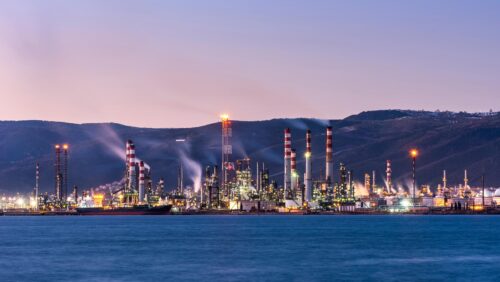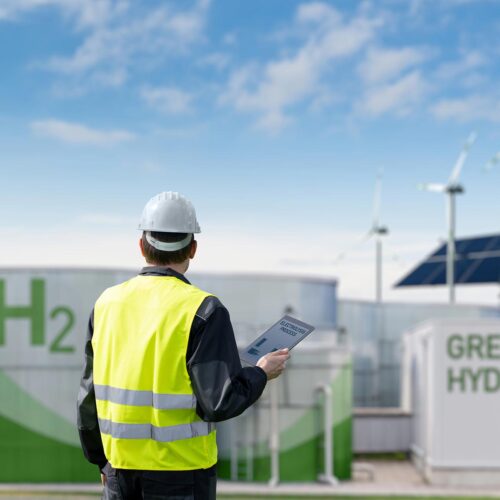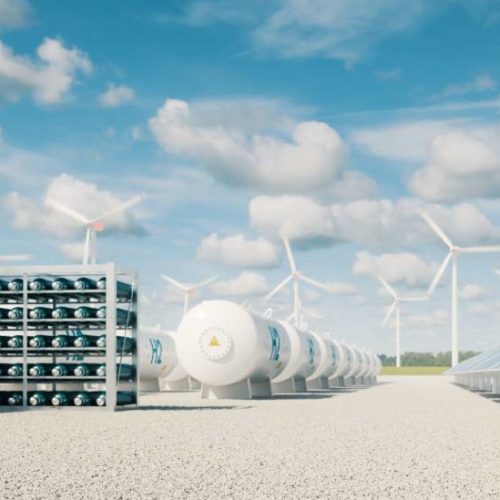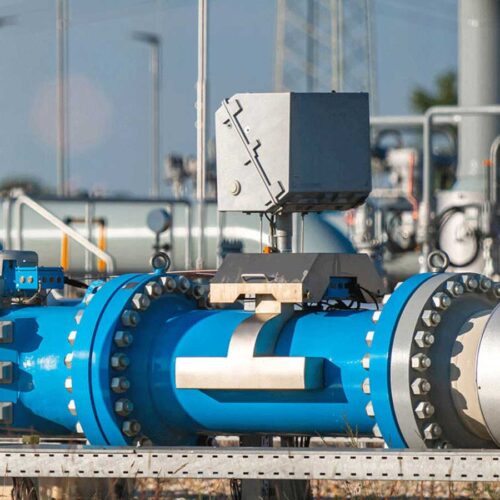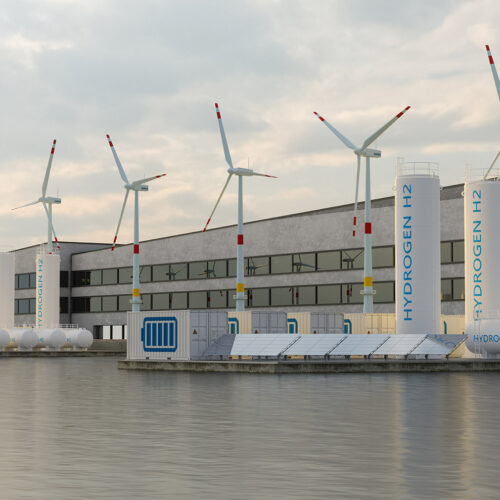Article
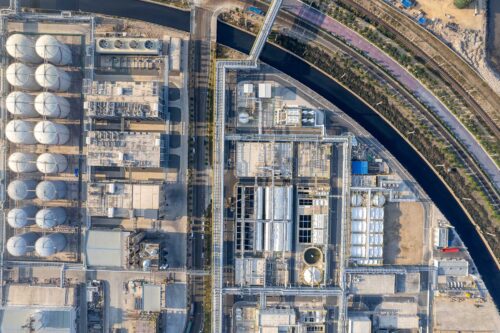
Hydrogen
A powerful tool for the final frontier of the energy transition
Hydrogen in the Energy Transition
RMI has been analyzing hydrogen’s role in a clean, resilient energy system for more than two decades. When produced cleanly, hydrogen can be a powerful decarbonization tool for sectors in urgent need of additional measures beyond direct electrification and efficiency. It can also offer a crucial pathway for energy security.
Hydrogen can be used as both a fuel, a chemical feedstock, and a catalyst, replacing fossil fuels such as coal, fossil gas, and oil in heavy industry and long-haul transport. But hydrogen is “clean” only if carbon emissions and leakage from its production, storage, distribution, and use are low. A well-regulated clean hydrogen economy based on transparent emissions accounting and certification is needed to ensure hydrogen’s climate benefit outweighs potential negative impacts. In the near-term, decision-makers will also need to make sure hydrogen is channeled to the highest-impact uses. With this transparency and deliberate prioritization in place, communities, companies, and governments can focus on accelerating the deployment of clean hydrogen to tackle some of the world’s thorniest decarbonization challenges. For a deeper dive into RMI’s position on hydrogen, check out this article.
Article
Article
From Innovation to Deployment
Currently, low-emissions hydrogen is expensive and not widely available. Several factors will help make or have already made clean hydrogen a cost-competitive replacement for fossil fuels in crucial industries. We believe hydrogen is reaching a series of tipping points in production and demand, which will create large opportunities for those who lead in the transition.
To enable hydrogen adoption at the rate we need to reach our climate goals, RMI is helping create an enabling environment for this new clean energy source. RMI’s global climate tech accelerator Third Derivative nurtures and connects innovative hydrogen startups with subject matter experts offering crucial technology, market, and policy insights. RMI’s Green Hydrogen Catapult, a coalition of ambitious companies deploying clean hydrogen in the most emissions-intensive industries, is providing a platform for market education, demand aggregation, and direct support for first-mover projects.
We are starting to see the results. While just a few years ago the largest hydrogen facility under construction was 20 megawatts (MW) in capacity; today, projects ten times that size are under development, many led by Catapult members.
Article
Article
Article
Making Low-Emissions Hydrogen a Responsible, Resilient Solution
The development and deployment of low-emissions hydrogen require systems-level thinking. Making hydrogen necessitates large amounts of energy and significant capital expenditure to build out its value chain. Addressing both considerations requires the mobilization and coordination of a vast range of actors: public and private, local and national, incumbents and disruptors. Clean hydrogen’s value to the energy transition is inseparable from decisions made by the industries that supply it, the communities that host it, and the companies that will use it.
Getting low-emissions hydrogen to the industries that need it to decarbonize will require infrastructure. These assets take time to develop and have a long operational life, meaning decisions taken today will commit us to pathways that stretch past 2050. RMI is working on the challenge of optimizing and planning pipes and wires that could deliver the lowest cost, lowest carbon hydrogen by engaging all stakeholders and building consensus on what the critical challenges are and what we can do to address them.
Clean hydrogen development must learn from the energy systems of the past and ensure that communities where projects are sited are integrated in planning and receive the benefits that they deem most valuable. To center community voices in project design, RMI is working with hydrogen project developers and local communities towards meaningful two-way engagement and responsive benefits, with a special focus on remediating historic underinvestment and legacy pollution in low-income and BIPOC communities.
Article
Article
Article
Hydrogen’s Role in Industrial Decarbonization
Crucial parts of our economy will be difficult to electrify due to cost and technological limitations. Hard-to-electrify industries can and should reduce their emissions through smart design, circularity, behavioral change, and increasing energy efficiency. But if we are to reach net zero, these sectors must be decarbonized immediately by additional means.
Through our years of deep techno-economic analysis and collaboration with industry-first movers, we believe low-emissions hydrogen and its derivatives are scalable for use in industry. It should be used to quickly displace the coking coal and natural gas in industries without alternatives and where there is the highest emissions abatement potential, namely in the steel, aviation, shipping, and fertilizer sectors. RMI is educating and bringing together industrial consumers in these sectors to spur hydrogen adoption and catalyze supply chains to achieve deep decarbonization.
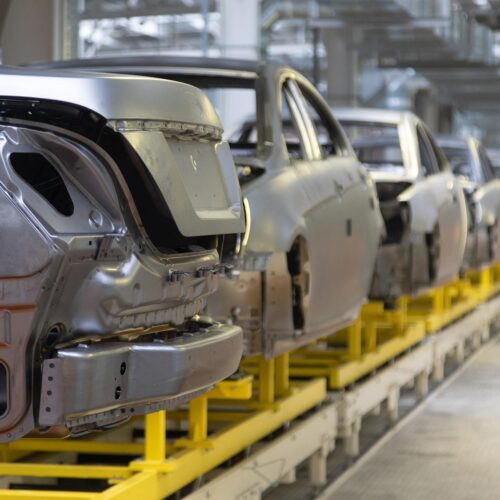
Hydrogen & Steel
Iron and steel manufacturers can use hydrogen to produce high-quality green iron, transitioning away from fossil fuels to decarbonize the sector and achieve net-zero emissions by 2050. Green iron will help reduce embedded emissions in growing steel-consuming industries like construction, automotive manufacturing, and renewable energy infrastructure. To help accomplish this goal, RMI launched the Sustainable Steel Buyers Platform (SSBP), connecting committed companies around the United States who need low-emissions steel with sustainable steelmakers, enabling corporate leaders to participate in the joint purchase of the first near-zero emissions steel in North America this decade.

Hydrogen & Shipping
While inland navigation and shipping across short distances can be electrified, deep-sea shipping — the glue that holds together supply chains and the global economy — is heavily reliant on the dirtiest of all fuels: heavy fuel oil. For the maritime sector to reach net zero, shipping companies need to transition to hydrogen-derived fuel alternatives such as ammonia and methanol. To stimulate their uptake in shipping, RMI launched a book and claim system for clean maritime fuels and is collaborating with leaders across the shipping value chain to develop supply strategies and create green shipping corridors.

Hydrogen & Fertilizer
Hydrogen-derived ammonia is the key component in nitrogen fertilizers. By starting with low-emission hydrogen, fertilizer producers can vastly reduce greenhouse gas emissions. Fertilizer production can be brought local when planned in conjunction with renewable energy projects, bolstering energy security for farmers, and can offer scale when combined with other ammonia offtake sectors. RMI is working to identify pathways to deploy cost-effective solutions by collaborating with project developers, local governments, civil society, academia, technology providers, and electric and agricultural cooperatives to enable clean fertilizer production in regions of the United States and the Global South.

Hydrogen & Aviation
To reach the sector’s net-zero targets, airlines will need sustainable aviation fuel (SAF), the only scalable tool to decarbonize aviation in the near term. All SAF production pathways require hydrogen as a feedstock. SAF currently represents less than 0.1% of the global aviation fuel market and is two to three times more expensive than fossil-based jet fuel. RMI is working closely with fuel suppliers, airlines, and corporate buyers to connect the dots across the value chain for SAF to rapidly increase the availability and use of this critical, low-emissions fuel.
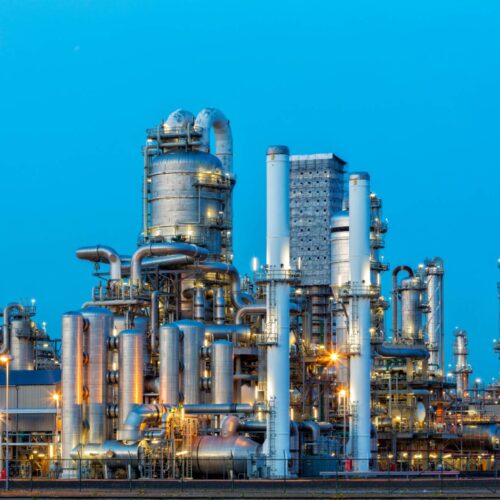
Hydrogen & Chemicals
By replacing traditional hydrogen feedstocks with cleaner alternatives and switching from natural gas to hydrogen for heat, chemical plants can reduce emissions by up to 32%. This shift not only lowers emissions from feedstock but also cuts high-temperature process heat emissions, as hydrogen combustion produces only water vapor instead of CO2. While clean hydrogen is currently more expensive, technological advancements, policy support, and growing demand are expected to drive down costs and increase availability. RMI is working with industry stakeholders to accelerate the adoption of clean hydrogen and decarbonization strategies like electrification and energy efficiency, unlocking significant emissions reductions across the chemicals industry.
Hydrogen Policy
Policymakers are crucial to ensuring hydrogen efforts are concentrated in the highest-impact sectors with the most benefit for our climate and communities. Policy support for low-emissions hydrogen is essential to bringing confidence to the nascent market, helping to lower the initial costs of building new projects, and mitigating risk for companies procuring this new clean energy source. RMI is helping policymakers achieve these disparate goals by providing comprehensive and impartial analysis to decision makers and convening stakeholders for collective action.

US Policy
Recent US federal clean energy policy, including production tax credits for clean hydrogen and clean electricity as well as demand-side incentives, has marked the greatest investment in economic growth and climate action in our lifetimes. RMI is demystifying what federal incentives mean for industrial decarbonization solutions like green hydrogen and helping innovators make the most of them. We also work with regional and local actors to execute on the opportunities created by federal policy to get projects from final investment decision to construction.
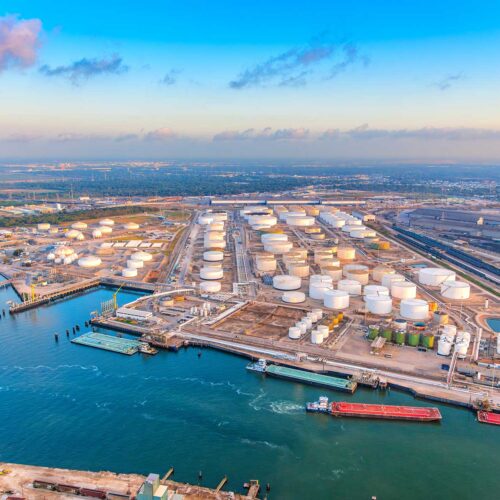
H2Hubs
One of the most promising policy approaches is the development of hydrogen “hubs”, which comprise localized clusters of low-emissions hydrogen producers, industrial consumers, and the transport infrastructure that connects them. By developing integrated regional hubs of hydrogen producers and users, policymakers aim to future-proof their investments and create green jobs and far-reaching economic benefits. RMI is supporting and accelerating several US low-emissions hydrogen hubs and the Department of Energy’s related program to encourage hydrogen development by providing differentiated analyses, facilitating information sharing between key stakeholders, and better positioning projects to reach their greatest potential to reduce emissions and produce shared benefits with local communities.
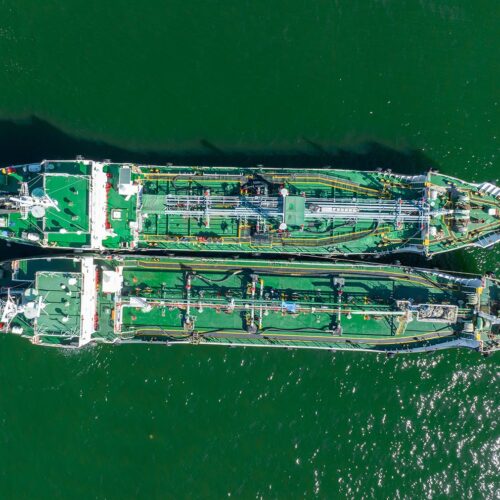
International Trade
Hydrogen’s role in energy security has been a key focus of European policymakers since the invasion of Ukraine and the resulting energy crisis. RMI is helping parse complex cost and opportunity dynamics, analyzing the potential for hydrogen and ammonia as an export medium for renewable energy, which would allow regions with strong renewables potential to export excess energy to regions like Europe. Understanding the opportunity created for first-mover projects when there is regional policy alignment, we are leading policy engagement for the Green Hydrogen Catapult; we also helped form the Transatlantic Clean Hydrogen Trade Coalition, which connects US fuel producers to heavy-industry consumers in Europe to help facilitate an inaugural shipment of clean hydrogen-based fuels by 2026.

Global South
Siting clean hydrogen-fueled industrial production in geographies with high renewables potential would allow those regions to develop supply chains and export hubs. RMI supports the planning, coordination, and capital raising efforts of regional hydrogen hubs and supply chains in Africa and Southeast Asia. Our analysis and engagement efforts are helping international policymakers realize the economic development and trade potential that low-emissions hydrogen can bring to their countries.
In The Media
Energy Monitor
Green hydrogen imports could bolster EU energy security
The Maritime Executive
New Maritime Book & Claim System Strengthens Case for Green Shipping
